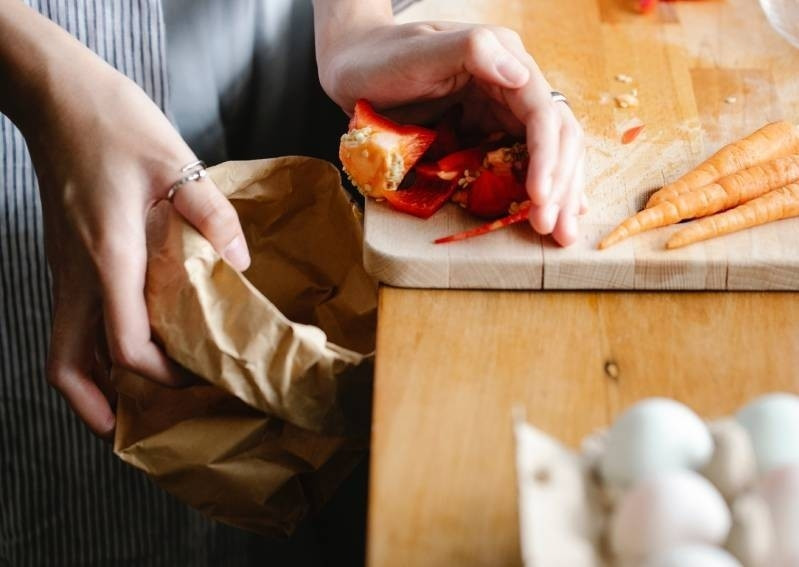Wasting food is not only a waste of money and resources, it also adds to world hunger and contributes to climate change by creating methane.
So, apply some of the following ways to save and protect the environment:
Smart shopping
The first and best way to avoid waste is to shop smart. While buying in bulk is often cheaper and more convenient, it also leads to more food waste.
Try to shop regularly instead of buying in bulk. Make a grocery list to avoid impulse buying.

Illustration photo: Pexels
Store food properly
Storing food incorrectly can cause it to spoil quickly, leading to waste. Knowing which foods should be stored where and which should be kept at room temperature can help improve their shelf life.
For example, potatoes, garlic, and onions are better stored at room temperature than in the refrigerator. Similarly, ethylene-producing foods like bananas and avocados should be kept away from leafy greens and berries.
You can place celery upright in a glass of water in the refrigerator to keep it crisp, and place wilted lettuce in a bowl of cold water to revive it.
Apply FIFO method (First in, First out)
The FIFO (first in, first out) method recommends that the foods that are placed in the refrigerator first should be used first. Before you intend to buy more food to put in the refrigerator, check what is still in there, which types can be utilized and used.
Make use of leftover food and wilted vegetables
Use leftover vegetables, bones and meat to make vegetable broth or bone water at home. Simply saute vegetables or bones with a little olive oil, then add water and simmer the mixture over low heat for a few hours until the water is sweet.
Don’t throw away fruit and vegetable peels. Many important nutrients are found in the outer layers of fresh produce, such as the skins of apples, potatoes, carrots, cucumbers, bananas, and mangoes. Fruit peels contain a wealth of vitamins, minerals, and antioxidants, and double as a nutritious, gut-friendly source of fiber.
Compost
If you have leftovers from making broth or smoothies, consider purchasing a compost bin for your home. Even if you don’t have a garden, you can still give this plant-friendly, eco-friendly compost to friends and family who need it.
According to VnExpress